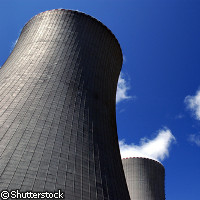'Nuclear will come back,' JRC head predicts
'Nuclear will come back, and will play its role in the energy mix of the key industrial countries,' stated Roland Schenkel, Director-General of the European Commission's Joint Research Centre (JRC). Dr Schenkel was talking to CORDIS News ahead of a session on nuclear energy organised by the JRC at the Annual Meeting of the AAAS (American Association for the Advancement of Science) in Chicago, US. The JRC picked nuclear energy as a topic for one of its sessions at the prestigious conference because, as Dr Schenkel put it, 'the debate on nuclear is getting stronger and stronger, not only in the European Union but worldwide.' Across Europe, governments are either embarking on the construction of new nuclear power plants or talking about it; at the beginning of February, Sweden's leaders announced plans to scrap their country's 30-year ban on the construction of new nuclear plants. Yet despite nuclear power's many proponents in both government and industry, large swathes of the general public remain unconvinced; according to a 2008 Eurobarometer poll, 45% of Europeans are against nuclear energy, 44% are in favour and 11% don't have an opinion. For his part, Dr Schenkel is keen to allay some of these fears about nuclear energy, most notably those relating to the safety of the reactors and the disposal of nuclear waste. He explains that the reactors being built today, the so-called Generation-III reactors, combine the expertise of France and Germany in the design and operation of nuclear reactors. Crucially, they also include additional safety features: even in the event of a major accident, the radioactivity will be confined to the reactor, thereby avoiding contamination of the external environment. 'The technology is evolving based on experience and technical progress, and the new reactors will be a factor of a thousand safer for a severe accident, and I think this is a message which is not coming across,' said Dr Schenkel emphatically. Generation-III reactors are already being built in Bulgaria, Finland, France, Romania and Slovakia, and further projects are planned elsewhere. With an expected lifetime of 60 years, these new reactors should operate well into the second half of the century. Meanwhile, work is already underway to develop Generation-IV reactors, although the first plants of this type are unlikely to become operational earlier than the middle of the century. These reactors have two major advantages. Firstly, they are able to use the uranium fuel much more efficiently. Secondly, certain elements that remain radioactive for a long time, such as plutonium, can be separated out of the waste and added back into the fuel mix. In the reactor, these components are split into products that will need to be kept separated from the environment for a much shorter timeframe. In this way, the volume of radioactive waste produced by Generation-IV reactors will be drastically reduced. One of the barriers to greater public acceptance of nuclear energy is the question of what to do with the waste; in the same poll mentioned above, 62% of EU citizens said they would support nuclear energy if safe solutions for waste disposal are implemented. In fact, solutions are already in place to deal with low- and medium-active waste, while solutions for handling the most active waste are being refined. Dr Schenkel explains that radioactive waste is currently stored in thick metal canisters, which are themselves stored in water-tight clay deep underground. Even if water made it through the clay, it would take hundreds of thousands of years for it to get through the metal containers, and thousands of years more for it to corrode the uranium. And even assuming all of this happens, the materials then need to migrate up hundreds of metres to the biosphere, which is another slow process. 'So this is the modelling done by scientists that are working in the field,' comments Dr Schenkel. 'They say this gives adequate security over long time horizons, and that is why everyone involved in the science says that this is a damned safe concept.' Another issue of concern for many people is nuclear proliferation. Here, Dr Schenkel notes that it is actually extremely difficult to use nuclear energy facilities for nuclear weapons programmes. Furthermore, the JRC and others are continually developing new tools and techniques to detect clandestine activities. As a result of this work, such activities tend to be spotted quite quickly. Among other things, the JRC has created models to simulate how quickly countries could enrich uranium, and enhanced its Web-mining service. 'Now we are developing a new technology for the detection of illicit trafficking at borders,' adds Dr Schenkel. This system will allow border guards to check lorries for nuclear materials. Meanwhile, Dr Schenkel would like the watchdog role of the IAEA (International Atomic Energy Agency) to be strengthened. Moreover, as the JRC Director-General concluded, 'all countries should sign the Additional Protocol [which gives the IAEA greater access to information and sites] so that there is real, full transparency, and the international organisations need to stick together to apply sanctions'.
Countries
United States



